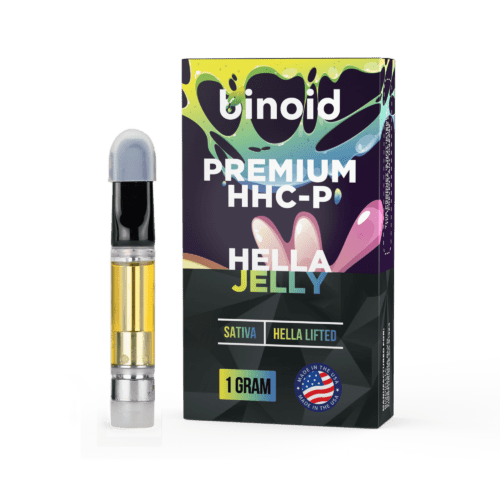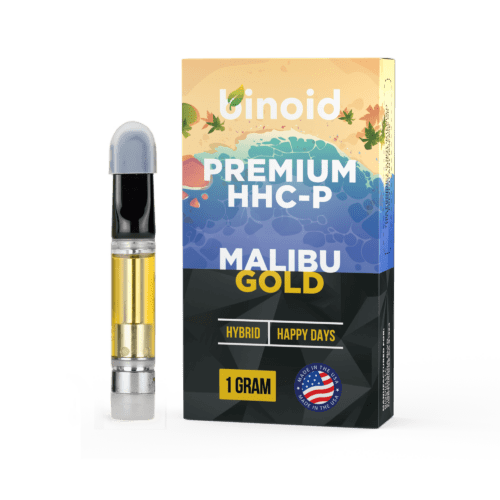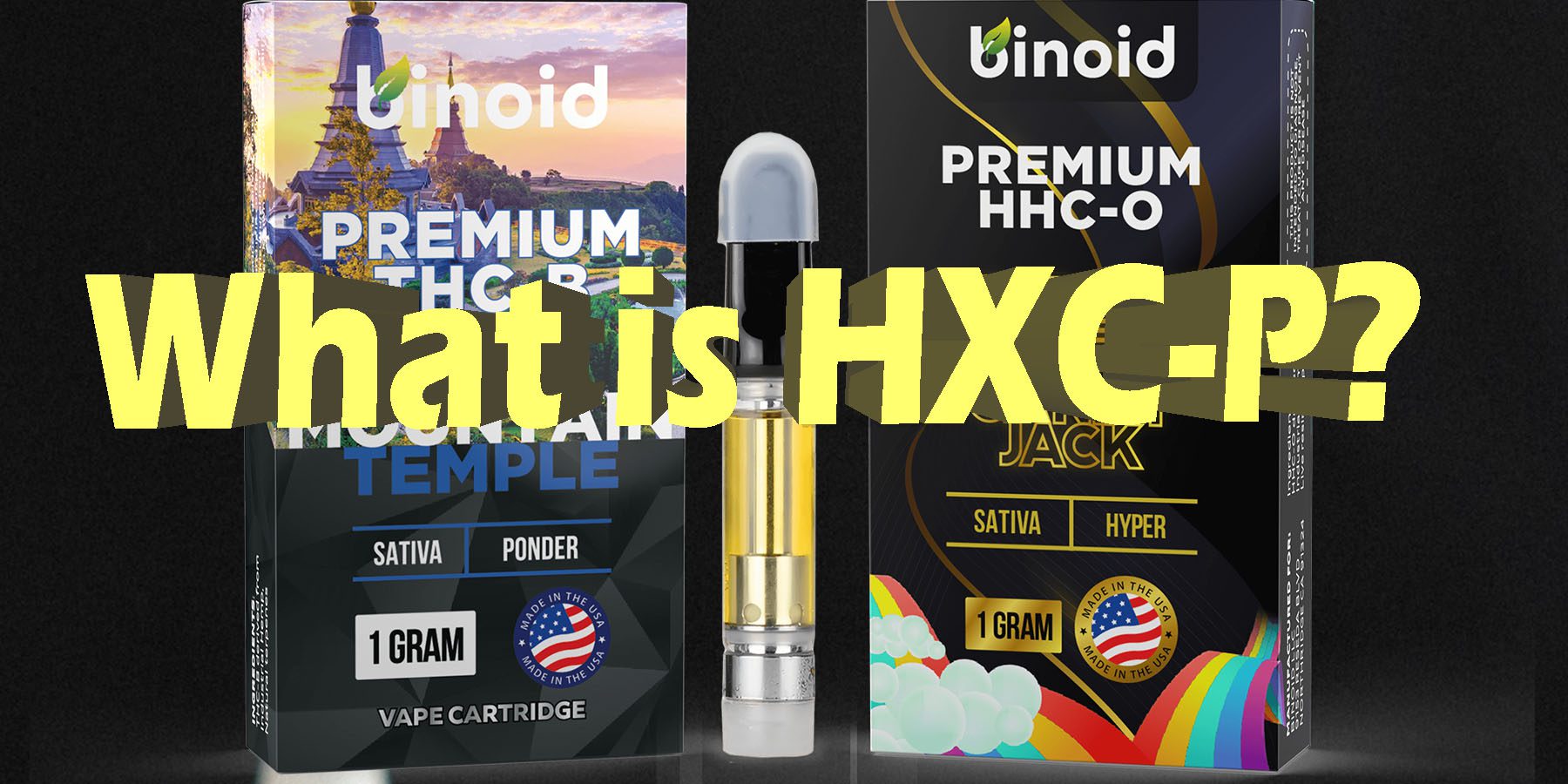HXC-P may sound like it’s the new cannabinoid on the market, but in fact, it’s just another way to abbreviate “hexahydrocannabiphorol,” which many of us know as HHC-P. Still, HXC-P/HHC-P is relatively new as it’s only been available for about a year now, and there are a lot of hemp enthusiasts out there who are dying to learn more about it before they commit to trying it themselves. Let’s take a deep dive into this fascinating, semi-synthesized hemp derivative and understand what it’s capable of.
TO BUY HXC-P PRODUCTS CLICK HERE
-
Product on sale
 HHC-P Vape Cartridge – Hella Jelly$30.99
HHC-P Vape Cartridge – Hella Jelly$30.99$59.99
HXC-P 101
Hexahydrocannabiphorol is a semi-synthesized hemp-derived cannabinoid distinguished by its chemical structure made up of 7 carbon atoms on its carbon tail. The reason why that distinction is important is because it tells us how powerful the effects of HXC-P are, by informing us on how the cannabinoid can attach to cannabinoid receptors in the body – more specifically, the CB1 receptors in the brain that are responsible for creating the high we get from cannabis.
Hexahydrocannabiphorol and tetrahydrocannabiphorol (THC-P) share a lot in common with one another, with the latter being a cannabinoid that was only discovered in 2019. THC-P is the most potently intoxicating cannabinoid of all, attaching to CB1 receptors 31x better than delta 9, translating to a high roughly 10x as strong as delta 9 THC. HXC-P was made to have structural features similar to THC-P, and so its high is roughly as potent.
Hexahydrocannabiphorol also happens to be a more chemically stable cannabinoid than THC-P, since it’s a hydrogenated cannabinoid that is derived from HHC (hexahydrocannabinol). HHC’s a naturally occurring cannabinoid that has a hydrogen atom, and that hydrogen atom ensures its stability. Because HXC-P is so chemically stable, it’s far more resilient to the elements compared to most other cannabinoids, and in fact, might be more bioavailable than other cannabinoids for that reason as well.
Where Does HXC-P Come from?
HXC-P is not a naturally occurring cannabinoid in hemp, but rather a chemically modified form of HHC. To make HXC-P, the HHC cannabinoid is isolated, and its carbon tail is enhanced to mimic that of THC-P. HHC is found in the seeds and pollen of the plant, meaning that HXC-P does ultimately come from a natural cannabinoid.
This has become something of a common practice in the cannabis world as research and technology have advanced. All cannabinoids are isomers of one another, meaning that you can rearrange the molecules of one to convert it into another. Isomerization is used to produce many products we use, including delta 8 products, in which CBD is simply rearranged to become delta 8, a naturally occurring cannabinoid in hemp that exists in only very trace amounts.
-
Product on sale
 HHC-P Tincture – 1000mg$30.99
HHC-P Tincture – 1000mg$30.99$79.99
Is HXC-P Natural in a Way?
Hexahydrocannabiphorol does not naturally occur in the hemp plant, although HHC and THC-P both do. HXC-P, again, is produced through an isomerization process, which is, in fact, how we get most of our hemp products today, including delta 8, THC-P, and HHC. Isomerization is a way to reconfigure the molecules in cannabidiol (CBD) to convert the cannabinoid into a new one – in this case, HXC-P.
All cannabinoids are isomers of one another, since they all come from cannabigerol (CBG), the initial cannabinoid to emerge in the cannabis plant before splitting itself up into over a hundred individual cannabinoids as the plant matures. Translation: All cannabinoids have the same molecules, and thus, rearranging them converts them into different cannabinoids. Cannabidiol (CBD) is used to make HXC-P, due to its abundantly available in the plant, making the process highly cost-effective.
So, Is HXC-P Truly Synthetic Then?
Yes, hexahydrocannabiphorol is synthetic cannabinoid that was created in a lab by a professional scientist. HHC-P does not exist in nature and must be synthesized in a laboratory. You can see why then, too, it is crucial to have a real grasp of those third-party labs, which are required for our industry, in order to measure what’s in that said HHC-P product you’re receiving.
Is HXC-P Intoxicating?
HXC-P is estimated to be about 10x as intoxicating as HHC, although ultimately, how high you’ll get off of it depends on a number of factors, including:
- Product type
- The strain within that product
- Your tolerance
- How much you’ve taken
- Whether you’re taking HXC-P with other cannabinoids
- Other substances in your system (alcohol, etc.)
Still, because it’s notably more intoxicating than many other cannabinoids, it is recommended that beginners go easy with it the first few times, starting out with a low dose to ensure that they can enjoy a manageable and satisfying high.
As for what the high feels like, it’s usually described as being heavily euphoric, yet intensely soothing to the body and mind. There may be a very potent body high as well, so prepare to cozy up as you may become physically drowsy.
-
Product on sale
 HHC-P Vape Cartridge – Ghost Rider$30.99
HHC-P Vape Cartridge – Ghost Rider$30.99$59.99
WILL HXC-P Cause a Failed Drug Test Result?
As a rule of thumb, any time you encounter a cannabinoid with “THC” in the name, you should assume that it puts you at risk of failing a drug test. Why? Because all THC-based cannabinoids are metabolized by an enzyme called THC-COOH, which is what standard drug tests are seeking to identify in a person’s urine.
Because HHC-P is particularly potent, there’s good reason to believe that it’s actually more likely to fail a drug test after taking this cannabinoid than it is after taking delta 9 THC.
Does HXC-P Have Any Potential Benefits?
In terms of any potential benefits that can be derived from HXC-P, there aren’t any studies available yet, since the cannabinoid is too new. But, users have reported consistently that its effects are comparable to those of THC-P.
What Kinds of HXC-P Products are on the Market?
HXC-P is a cannabinoid that’s been out there long enough for there to be a generous selection of products available. HXC-P can be converted into a distillate, which is a pure HXC-P extract that’s easy to combine with other ingredients to create all kinds of product types. Here are the most popular types of HXC-P products that you’ll find today.
- HXC-P Vape Cartridges: 510-threaded vape carts containing HXC-P distillate and strain-specific terpene profile extracts
- HXC-P Disposable Vape Pens: Disposable, all-in-one vaping systems with the same vape oil formula above, that require no maintenance
- HXC-P Tinctures: Bottled oils with dropper caps that allow for sublingual administration of HXC-P distillate plus a carrier oil
- HXC-P Edibles: Gummies and other types of edible products that’re ingested, to promote a high for up to 8 hours
- HXC-P Flower: Raw hemp flower buds infused with HXC-P distillate, in a number of popular cannabis strains
- HXC-P Dabs: Concentrates used for dabbing (flash-vaporizing at high temperatures through a dab rig, dab pen, etc.) for an ultra-potent and fast-acting high unlike any other
-
Product on sale
 HHC-P Vape Cartridge – Malibu Gold$30.99
HHC-P Vape Cartridge – Malibu Gold$30.99$59.99
Can I Buy and Use HXC-P Legally?
HXC-P is, in fact, a legal cannabinoid under federal law, because it complies with the 2018 Farm Bill that federally legalized all hemp derivatives that contain a maximum of 0.3% delta 9 THC in the United States. However, over the last couple of years, a number of states have declared all psychoactive hemp-derived cannabinoids as illegal. HXC-P falls into that category, and so if you live in one of the states below, you cannot legally purchase HXC-P:
- Alaska
- Arizona
- Arkansas
- Colorado
- Delaware
- Hawaii
- Idaho
- Iowa
- Maryland
- Mississippi
- Montana
- Nevada
- New York
- North Dakota
- Oregon
- Rhode Island
- Utah
- Vermont
- Washington
Can I Get Side Effects from HXC-P?
HXC-P isn’t considered less safe than any other cannabinoid, and it’s considered nontoxic to the body. Still, some relatively mild and short-lived side effects may happen if you take too much HXC-P, or if your tolerance is very low. These side effects include:
- Anxiety
- Paranoia
- Low blood pressure
- Dizziness
- Nausea
- Spaciness/grogginess
- Forgetfulness/confusion
- Decreased motor skills
- Dry mouth
- Dry eyes
HXC-P: A Potent Form of HHC That Lives Up to the Hype
HXC-P is an incredibly powerful version of HHC, already a hugely in-demand hemp derivative, and its euphoric high can be just what you’re looking for. Also known as HHC-P, it’s been out for a while, and can be enjoyed in a wide range of sought-after product forms.
At Binoid, we offer a rich selection of vapes, gummies, and more, all of which highlight this cannabinoid’s exceptional properties in the form of a fully lab-tested HHC-P distillate. Explore our massive collection of HXC-P (HHC-P) products today to find out what all of the hype is about.
TO BUY HXC-P PRODUCTS CLICK HERE
-
Product on sale
 HHC-P Vape Cartridges – Bundle$103.99
HHC-P Vape Cartridges – Bundle$103.99$199.96


